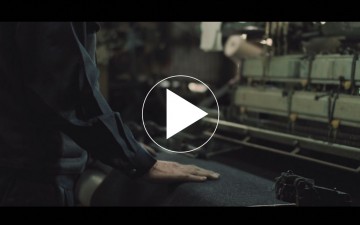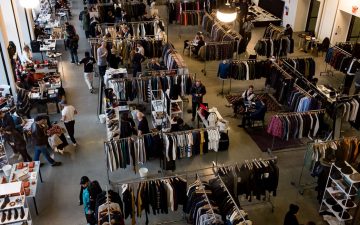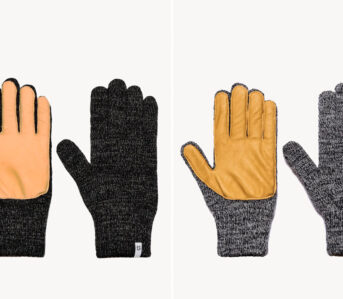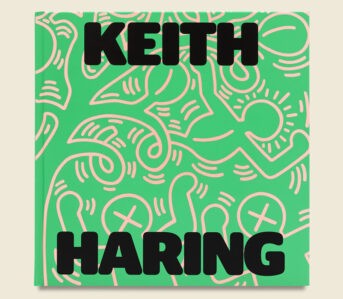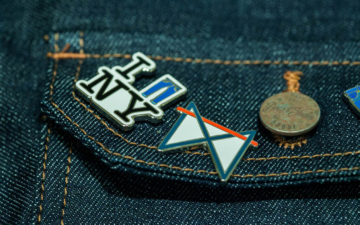I came to Kojima with a clear goal in mind. Coffee. Not just any coffee, not even expensive single-origin coffee served to me by someone in a fisherman beanie who’s never fished. (Hey, I haven’t touched a fishing rod either since I was about 6, so who am I to talk?). Honestly, the quality of the coffee doesn’t really matter, it could be discount instant coffee for all I care. It was coffee that came in a raw denim bag. (!).
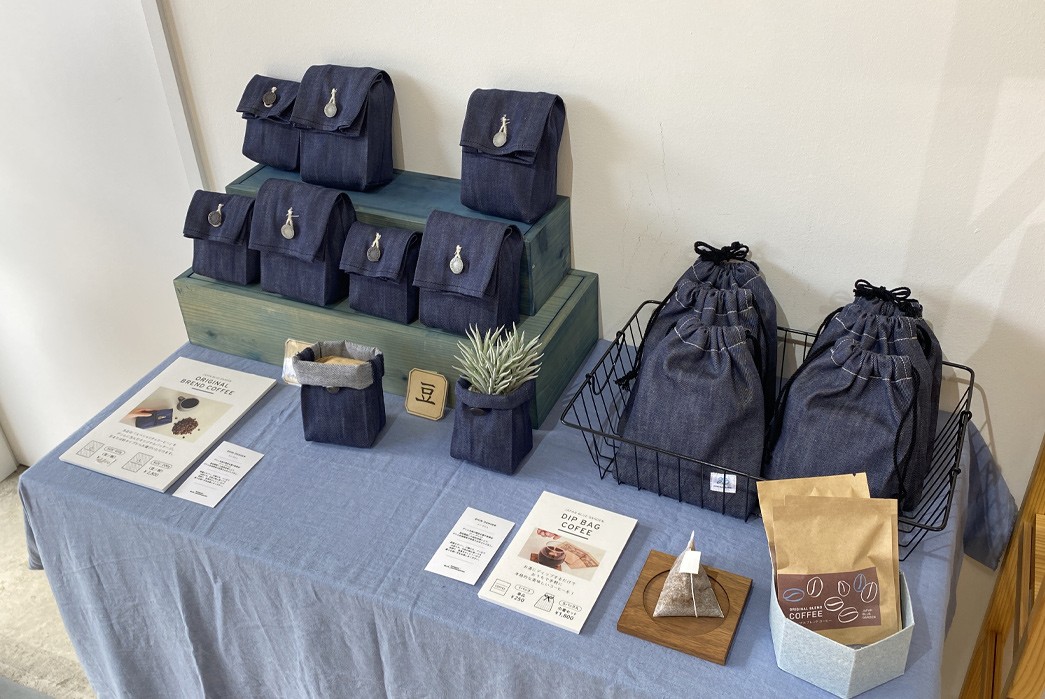
Image via Karu
But hey, seeing as I’m here anyway, let’s talk jeans. Everyone who reads Heddels will know Kojima. The mystical Kojima. The sacred Kojima. The magical land where beautiful selvedge denim artisans live blissfully in their repro 501s and type 2 jackets.
But to avoid the risk of adding to the increasingly saturated Kojima content online (c’mon, even The Guardian did a piece), I wanted to highlight some parts of my journey beyond just the Iron Hearts, Momotaros and Japan Blues.
In the raw denim niche, Okayama, Kurashiki and Kojima are used interchangeably. It’s just different names for that same place where the good stuff is made, right? Yes and no. Kojima is a district of Kurashiki city, which is located in Okayama prefecture. Many factories are scattered across Kurashiki city, but Kojima is where the famous jeans street is.
As I wrapped up the Shikoku leg of my trip, I made the journey up to Kojima. I arrived on a foggy Tuesday midday. Here are some cool things on the trip.
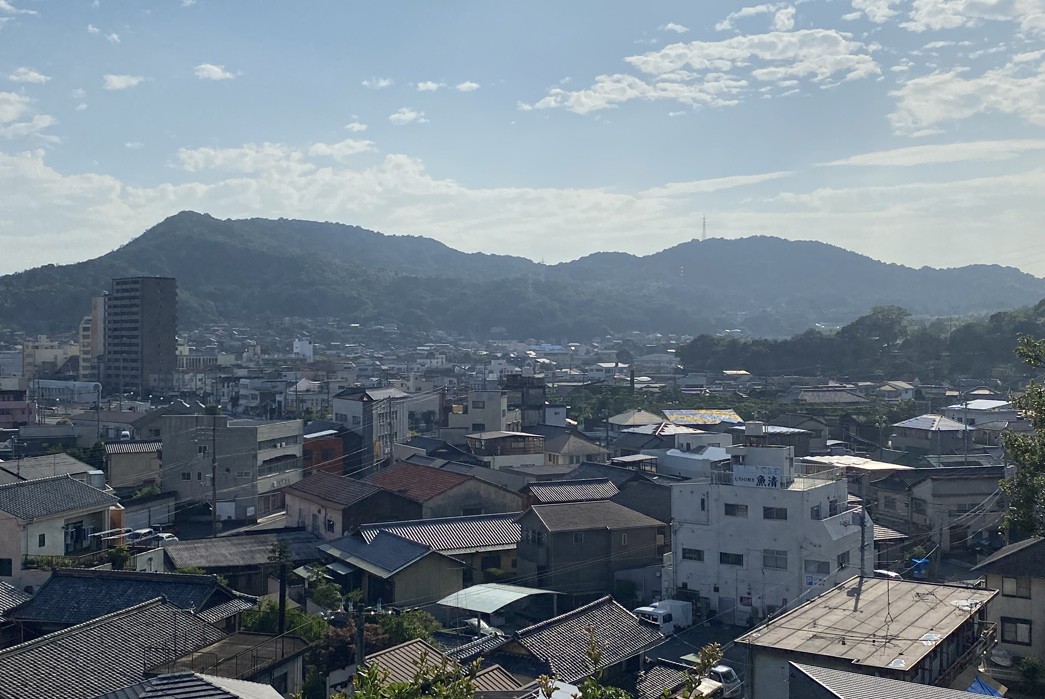
Image via Karu
Kojima Genes
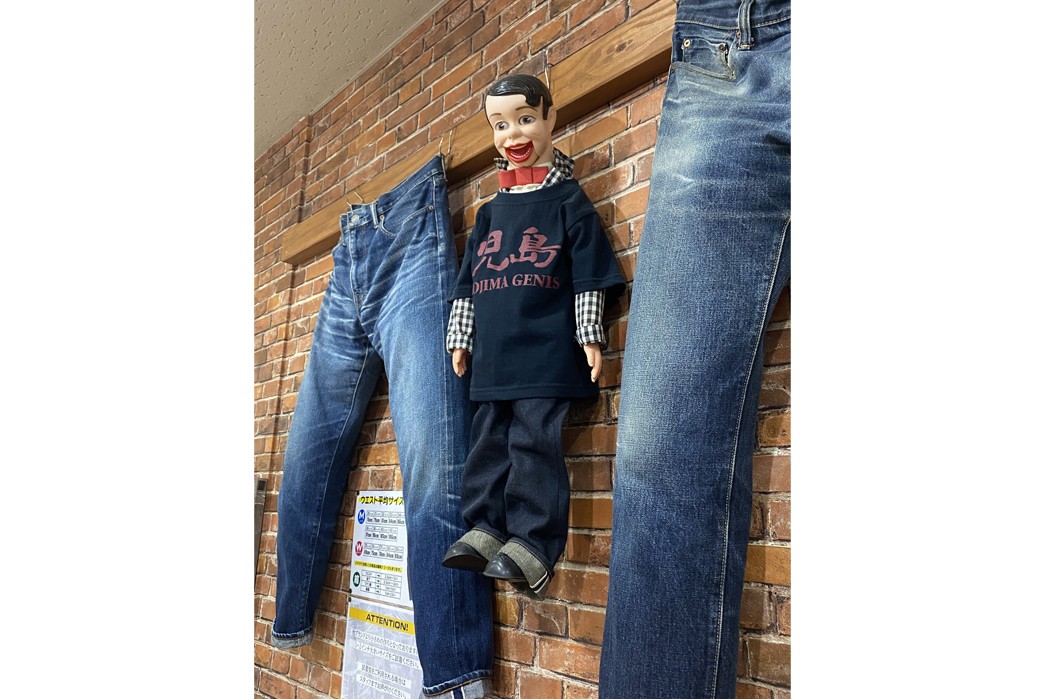
Image via Karu
Kojima Genes doesn’t garner the same amount of respect as its peers. It doesn’t have the same history as the Osaka 5. It doesn’t have the same fashion-forwardness and design consciousness as Japan Blue Jeans. Nor does it have the same character and quirkiness of Samurai and Studio D’artisan. But to make it for itself, Kojima Genes makes affordable, no-nonsense quality denim.
No flashy logos or marketing gimmicks. I like to think of the brand as Japan’s equivalent of Unbranded. But with better prices. Kojima’s standard 15oz straight fit jeans come in at 13,200 yen. Roughly 90USD as of 2023. Kojima Genes is fairly easily available in Japan, but it isn’t quite as easily available outside of the country. If you don’t live in Japan, I would buy through Bears’ Shimokitazawa, a Tokyo-based denim store that offers international shipping.
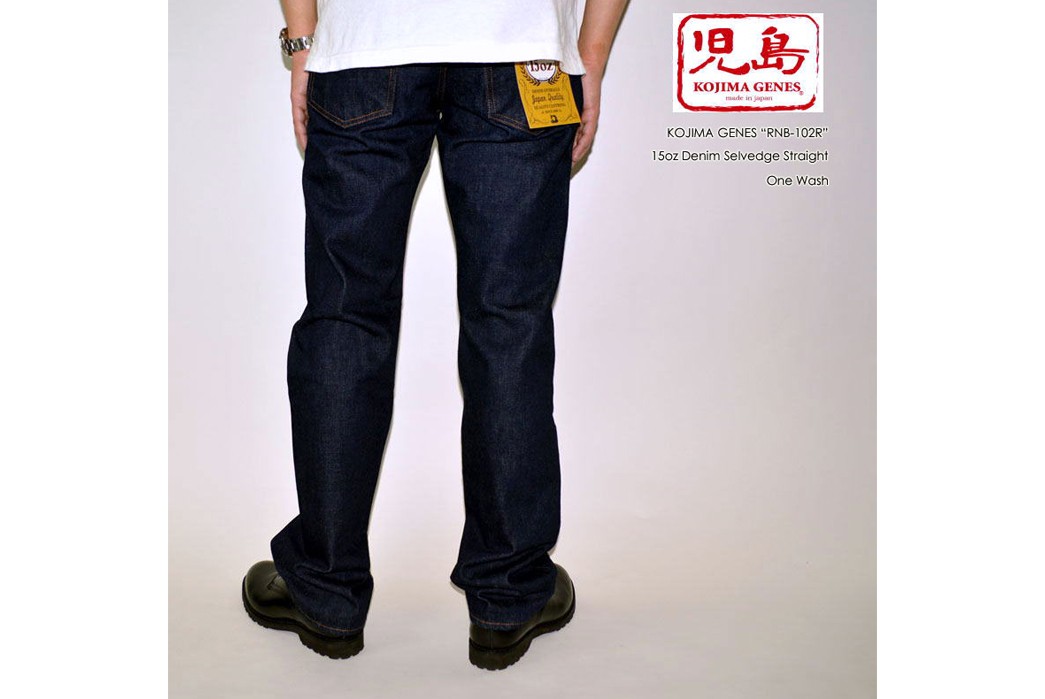
Image via Bears’ Shimokitazawa
Don’t take Kojima Gene’s modest prices for a conservative option. They offer the standard 15 oz. fabric all the way up to a brave 25oz, and everything in between. Skinny fits, straight fits, wide fits, to a ridiculously baggy balloon fit that Soulja Boy would endorse.
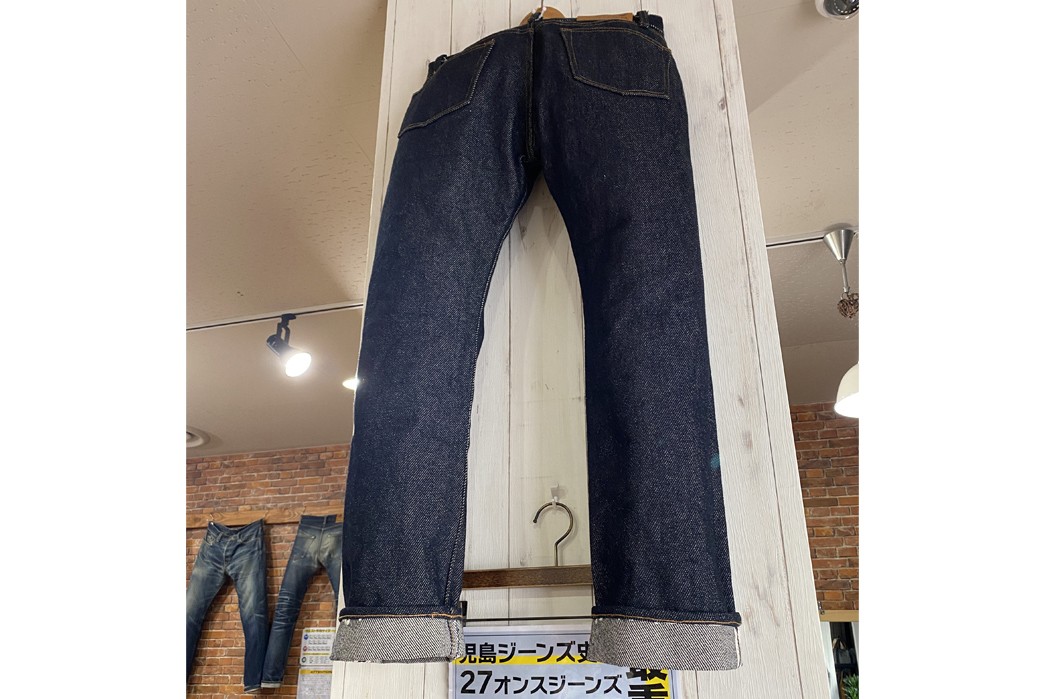
27oz Kojima Genes, but not for sale, unfortunately. Image via Karu
Big John
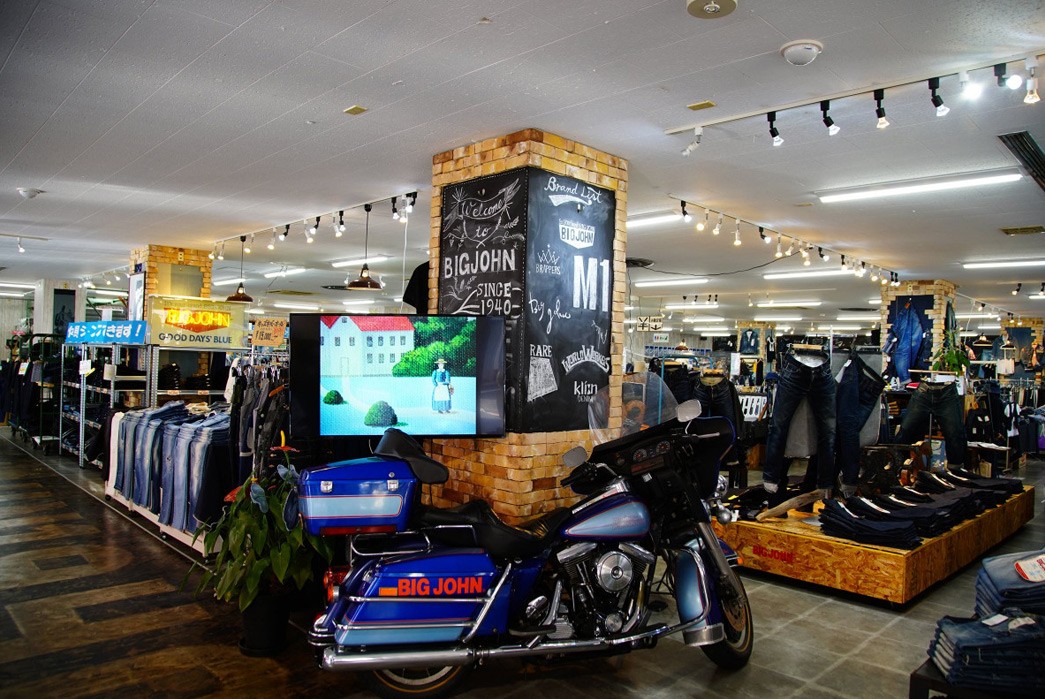
Image via Okayama-Kanko.jp
Big John became the first manufacturer of domestic jeans in Japan in 1973. Making this year their 50th anniversary. Stepping into their Kojima flagship is a lot of fun. It’s by far the largest store I visited during this trip.
I spent a good 30 minutes just walking around and looking at everything they had. I would say at least a quarter of the products were items that I’ve never seen on the website. Raw denim companies generally fit into either a repro, heavyweight or fashion category. Don’t think their storied history means they only make strictly repro jeans. Big John does not nicely fit into any single category. In their Kojima flagship, you’ll from traditional loopwheel t-shirts and Levi’s repros lay next to 20oz+ jeans and hyper-stretch jeans, the brand isn’t afraid to break the mould and dabble in the unexpected.
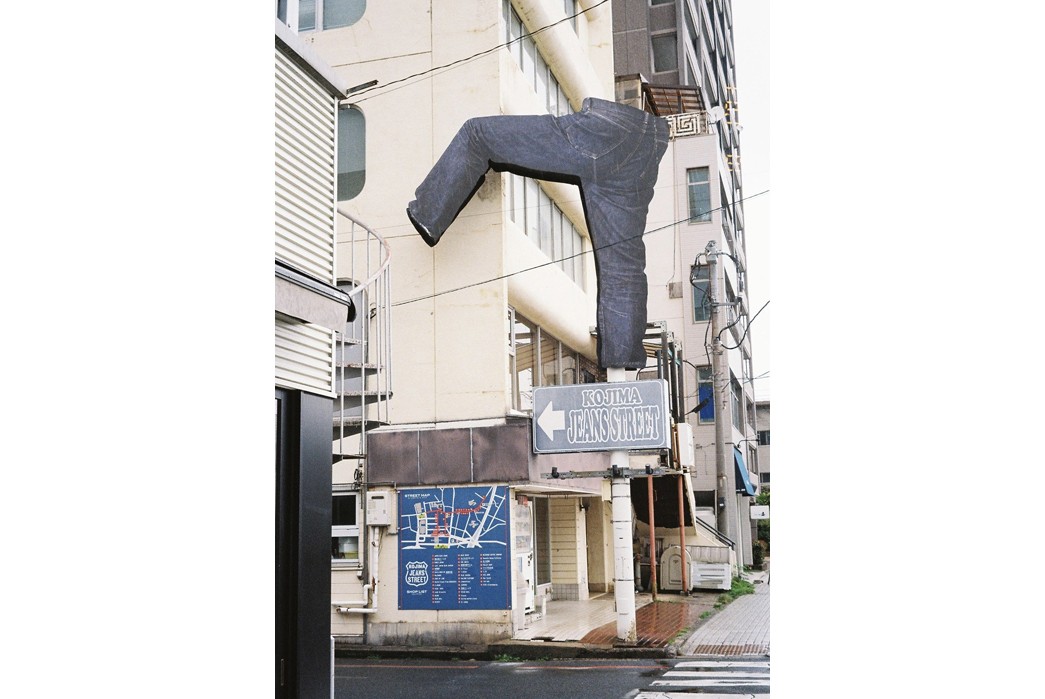
Image via Karu
Towards the back of the store, you have a small area where you can try indigo dyeing for yourself on tote bags, aprons, pencil cases and many other items. Sure, it’s not the rigorous natural indigo rope-dyeing process of Pure Blue Japan, but it’s good fun. I had a go with a tote bag myself.
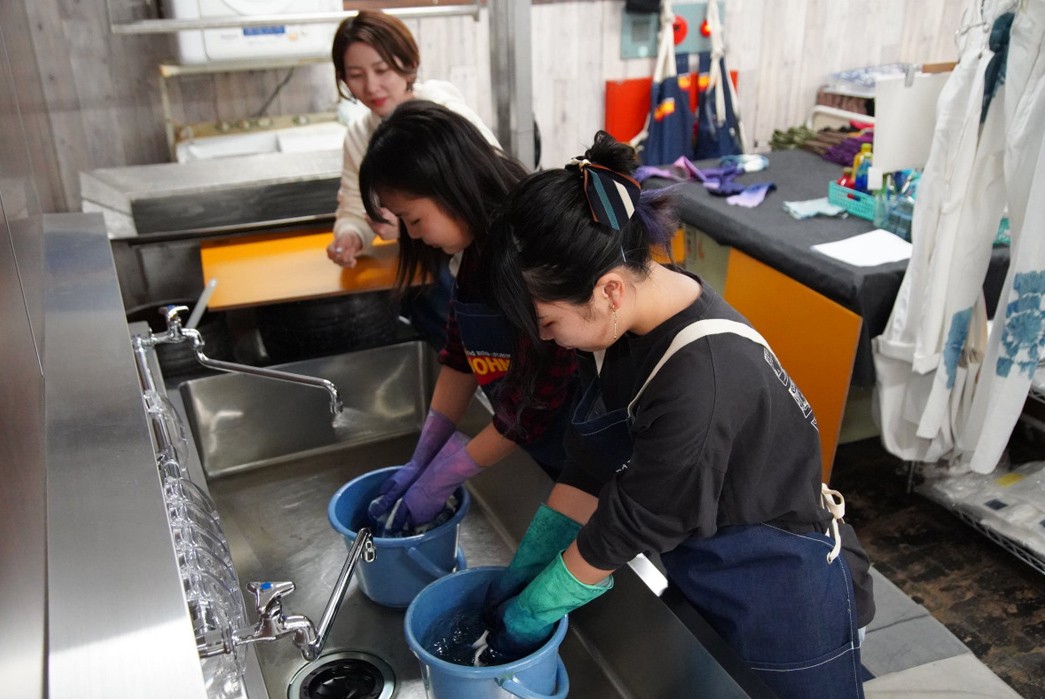
Image via Okayama-Kanko.jp
sio/シオ
I needed to wait for my Big John tote bag to dry, so I had 45 minutes to kill. Feeling a little hungry, I went across the road to sio, a minimal Western-style restaurant. I’m not a food expert by any means, so i won’t comment too much on the food. I had to include this restaurant because it introduced me to Kalimoxto. The magical blend of wine and cola.
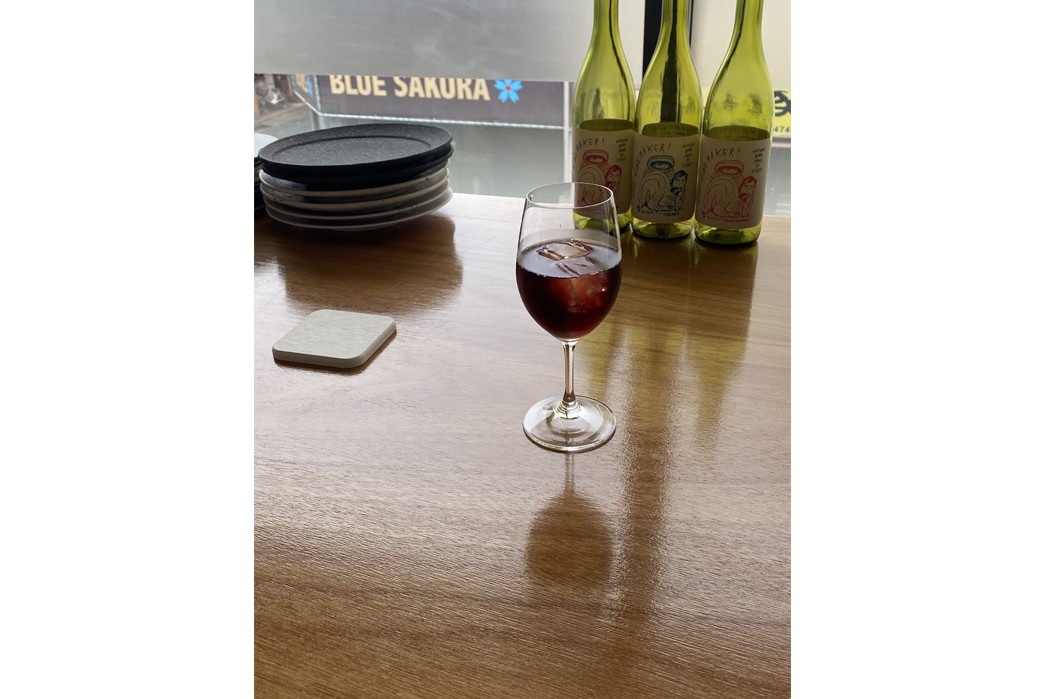
Image Via Karu
I’m not a purist with denim (stretch, non-selvedge and whatever. Anything goes with me). So in the same vein, I’m not a purist with wine either. If any wine snobs are reading this, put your ego aside and just try it. Trust me.
Japan Blue Jeans
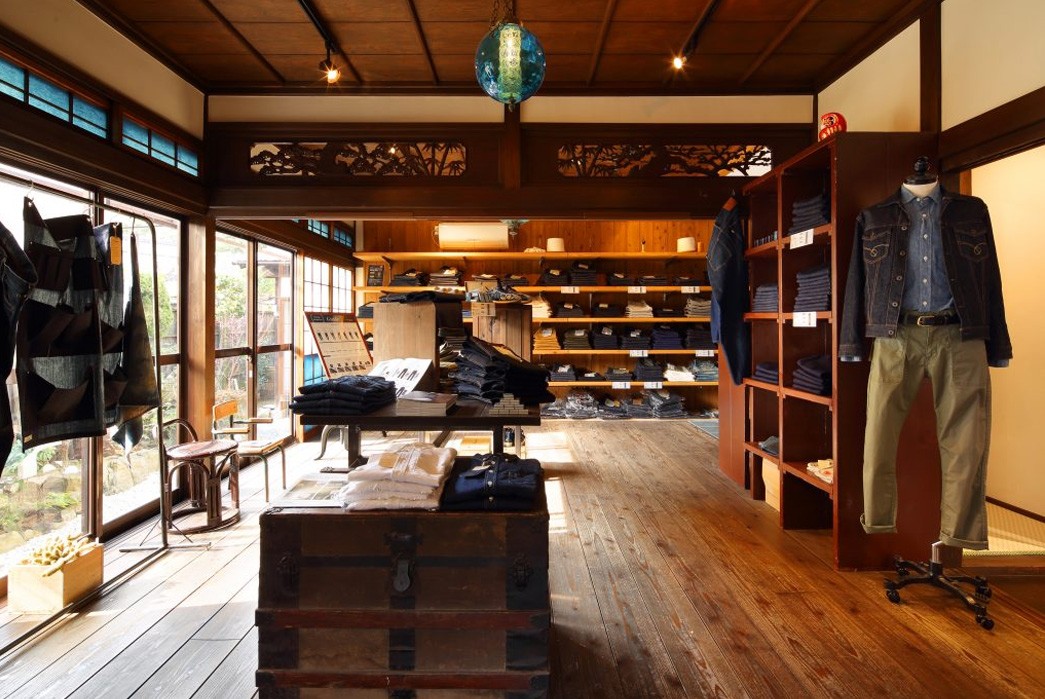
Image via Japan Blue Jeans
At the start of this article, I said I wanted to highlight some parts of Kojima beyond the Iron Hearts, Momotaros and Japan Blue Jeans. But here I am, writing about Japan Blue Jeans. But I promise there’s a reason. If I visited JBJ’s Shibuya or Ueno location, I wouldn’t bother writing about it.
Just look at it, JBJ’s Kojima flagship is inside a beautifully maintained and renovated traditional Japanese home. My favourite part is the room wear faded samples of JBJs are laid across the tatami floor.
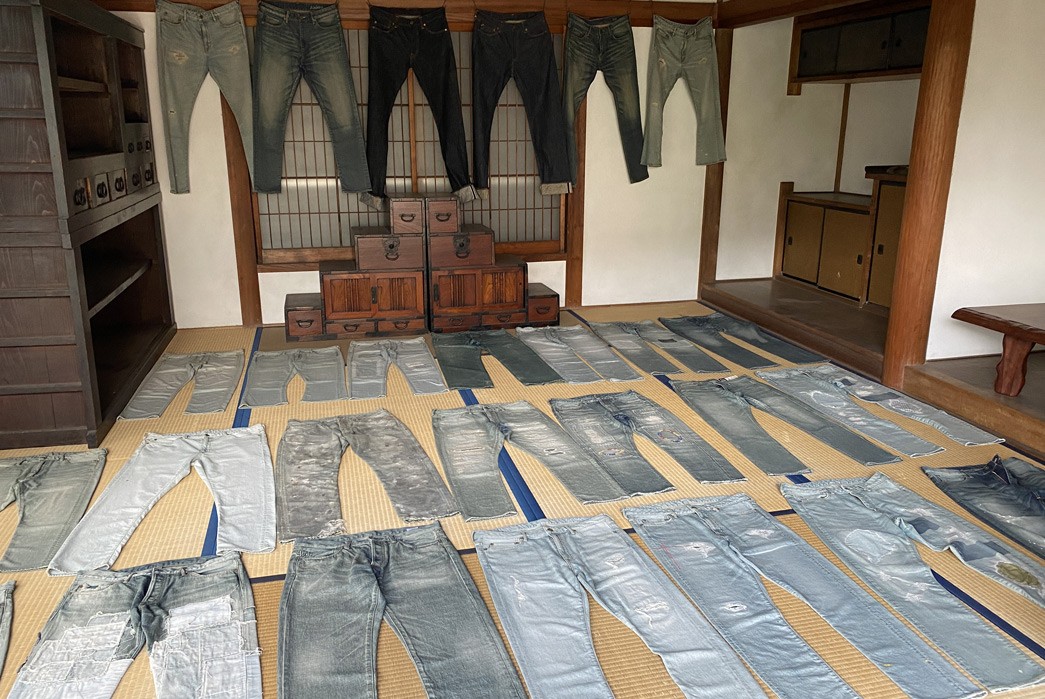
Image via Karu
URVIN
What comprises the typical raw denim fan? Someone wearing a pair of double-cuffed raw denim, heavyweight flannel and a pair of Redwings rugged enough to leave craters? (The quintessential r/rawdenim outfit). I’ve always had trouble relating to that image of raw denim. Trust me, I don’t plan on chopping wood or fixing Chevrolets anytime soon. So I’ve always felt I’m playing dress-up when I wear that type of outfit. (But does your outfit need really need to be “authentic?” Japanese teens wore Ivy-style clothing when they studied at Chuo University and not Cornell. I wear fisherman beanies when I haven’t touched a fishing rod in years. And East Coast rappers in the 90s wore the same brand of overalls as dairy farmers on the other side of the country).
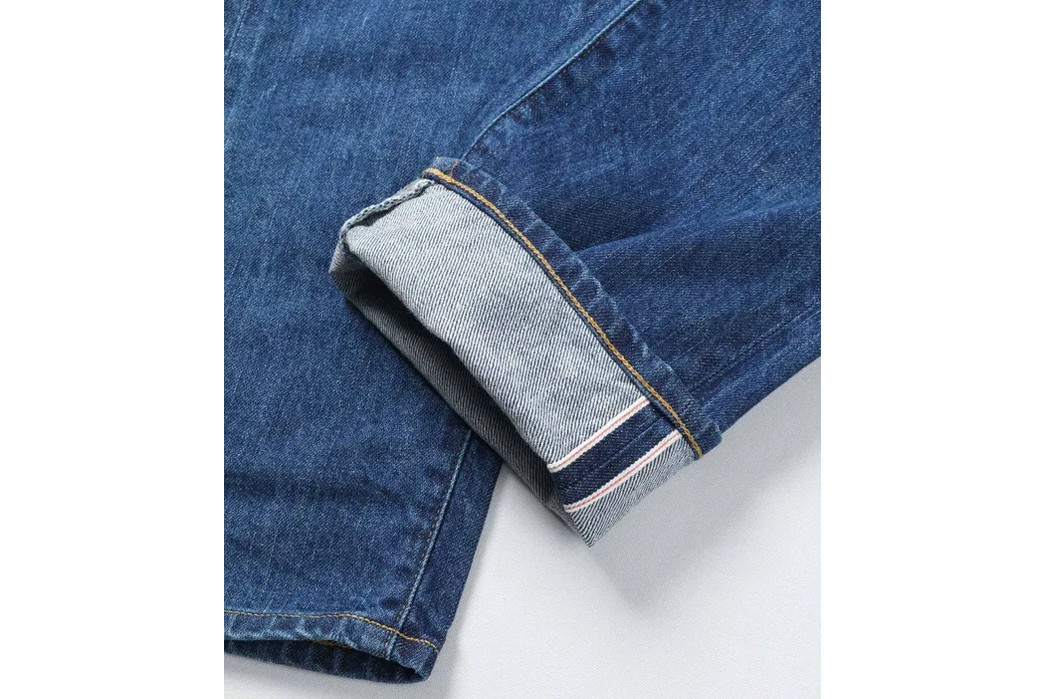
Image via The Homula Blog
Generally, I enjoy the more fashion-focused brands of raw denim. Japan Blue Jeans has beautiful silhouettes inspired by European fashion. Kapital does artistic interpretations of traditional textiles. Evisu Japan makes repro denim without all the stuffiness and pretentiousness.
URVIN is another take on raw denim that I especially like. Started in 2018 by Japan Blue Group, URVIN is a denim label focused on womenswear. The name comes from the combination of “vintage” and “urban,” vintage garments with simple and modern twists.
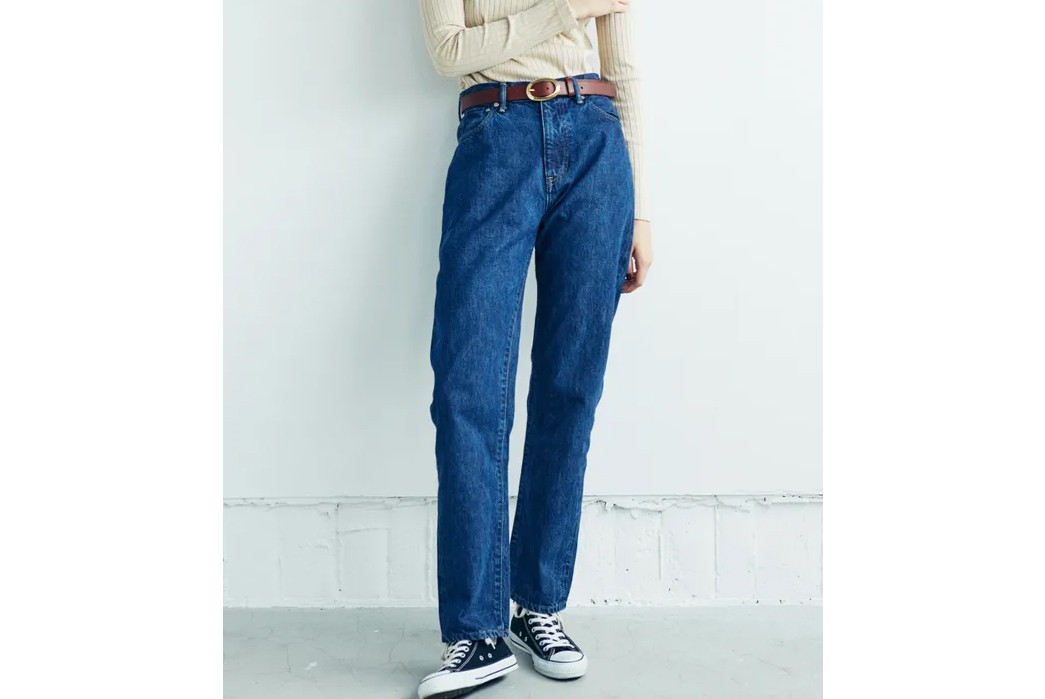
Image via The Homula Blog
Tomorrow I make my way back up to Tokyo. More soon. Oh also, this is the cafe that sold coffee beans in a raw denim bag.
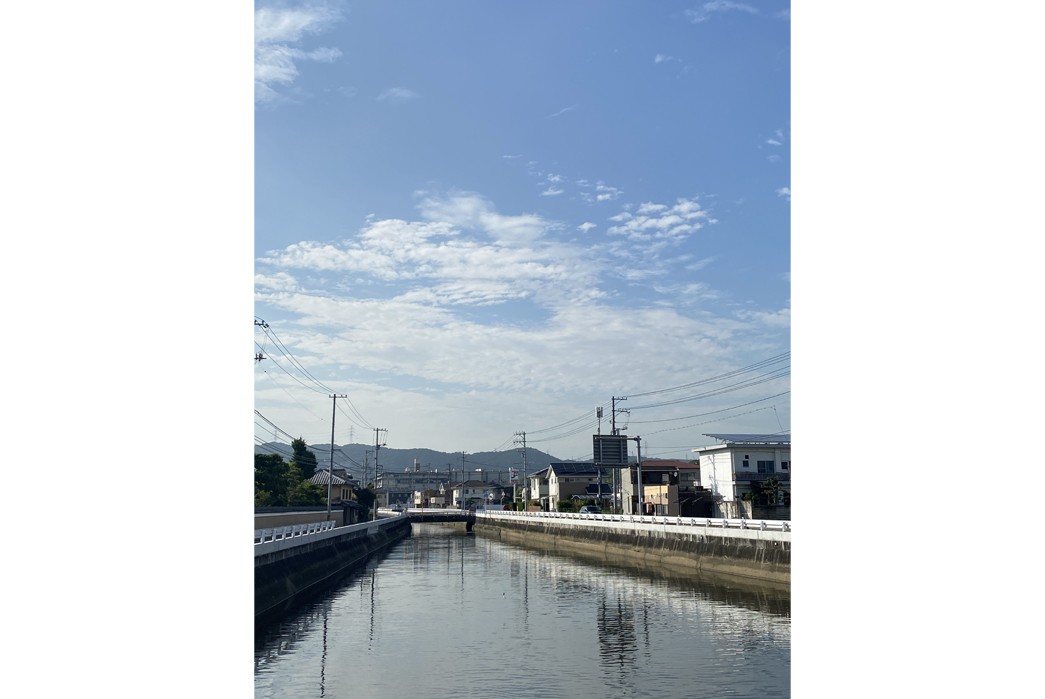
Image via Karu
